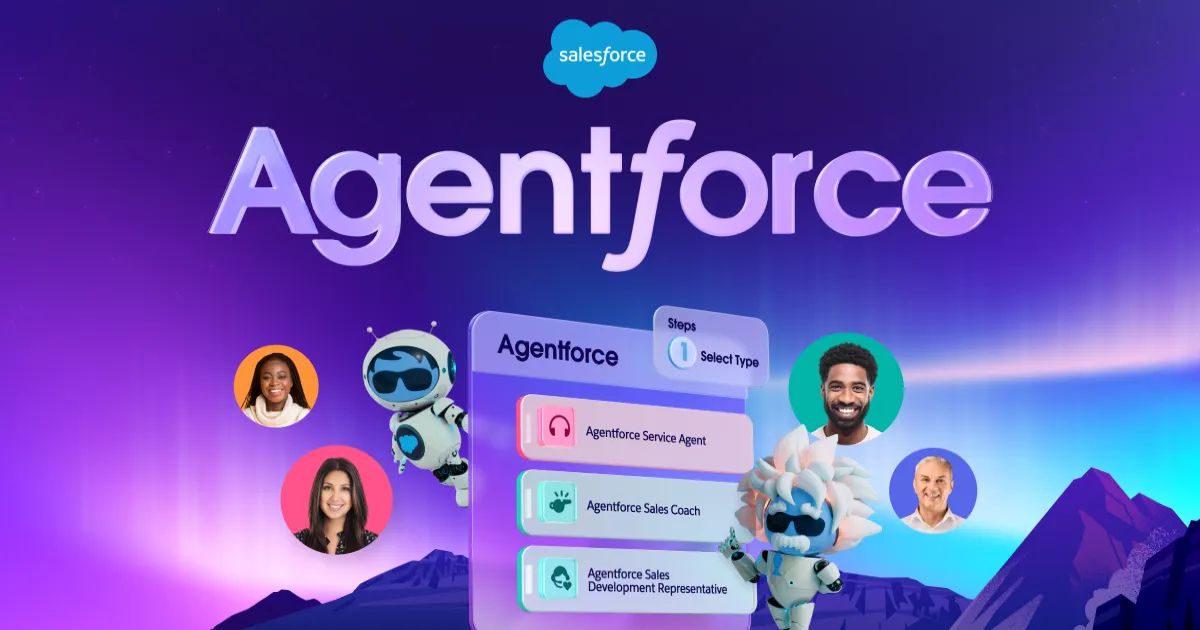Salesforce launches Agentforce Vibes, its enterprise vibe coding tool

Salesforce is doubling down on the future of AI-assisted software development with the launch of Agentforce Vibes, its latest tool designed to bring “vibe coding” to the enterprise world. Announced on Wednesday, the offering reflects Salesforce’s vision for a new era where developers simply describe what they want in natural language — and autonomous AI agents handle the rest.
From Idea to App With AI
Agentforce Vibes is built to take developers from the initial spark of an app idea through to implementation, observability, and governance. The platform emphasizes enterprise-grade security and compliance controls, addressing one of the biggest concerns companies face when adopting AI-powered coding solutions.
At the heart of the new tool is Vibe Codey, an autonomous AI coding agent. Unlike generic code assistants, Vibe Codey is already connected to a company’s Salesforce org, meaning it can reference existing codebases, adhere to established coding standards, and build apps that integrate seamlessly into an organization’s existing ecosystem.
“We’re trying to give you everything,” said Dan Fernandez, VP of product for developer services at Salesforce, in an interview with TechCrunch. “So rather than having to spend a bunch of time setting up model context protocols, a dev environment, or tools, everything’s prebuilt and ready for you — including AI requests to get started. And that really is sort of a differentiator on how we’re lowering the barrier to entry.”
Not Salesforce’s First Rodeo
This isn’t Salesforce’s first experiment with vibe coding. The company has been iterating on AI developer tools since 2023 and announced the general availability of Agentforce for Developers at last year’s Dreamforce conference. Agentforce Vibes represents the culmination of those efforts, tailored specifically for Salesforce development and enterprise-grade agent deployment.
“We are taking the power of the client tools and Agentforce for developers and making it tailored to Salesforce development,” Fernandez said. “It really is that end-to-end experience for having an enterprise vibe coding for the agentic enterprise.”
The tool is built on a fork of Cline’s Visual Studio Code Extension, an open-source AI coding agent. Salesforce ultimately chose Cline due to its strong support for MCP (Model Context Protocol), a key framework that allows AI models to securely interface with external tools and data.
The Bigger Vibe Coding Picture
The timing of Salesforce’s release is notable, as the vibe coding space is experiencing explosive — if sometimes frothy — growth. Startups like Lovable have reportedly turned down unsolicited investor offers after reaching a $1.8 billion valuation within eight months of launch. Another, Anything, claimed to hit $2 million ARR just two weeks after going live.
Despite the hype, challenges remain. Running vibe coding platforms demands massive large language model (LLM) usage, driving up costs and squeezing margins. While startups must wrestle with these economics head-on, Salesforce can afford to bake vibe coding into its broader ecosystem, where it acts as a value-add rather than a standalone product.
To that end, each Salesforce org will receive 50 requests per day powered by OpenAI’s GPT-5, with additional usage routed through a Salesforce-hosted Qwen 3.0 model. Currently, Agentforce Vibes is free for Salesforce customers, though the company hinted that tiered usage-based pricing will come later.
Looking Ahead
By tightly integrating vibe coding into the Salesforce ecosystem, Agentforce Vibes could redefine how enterprise developers approach application building — shifting focus from writing code line by line to orchestrating AI-driven workflows.
Whether vibe coding becomes a mainstay or a short-lived trend will depend on both economics and adoption. But with Agentforce Vibes, Salesforce is betting that enterprises want the efficiency of AI-powered coding without the risks of fragmented tools or security compromises.
And as Fernandez put it, Salesforce aims to make vibe coding not just accessible, but inevitable: “Everything’s prebuilt and ready for you. That’s how we lower the barrier — and that’s how we open the door to the next generation of enterprise development.”





